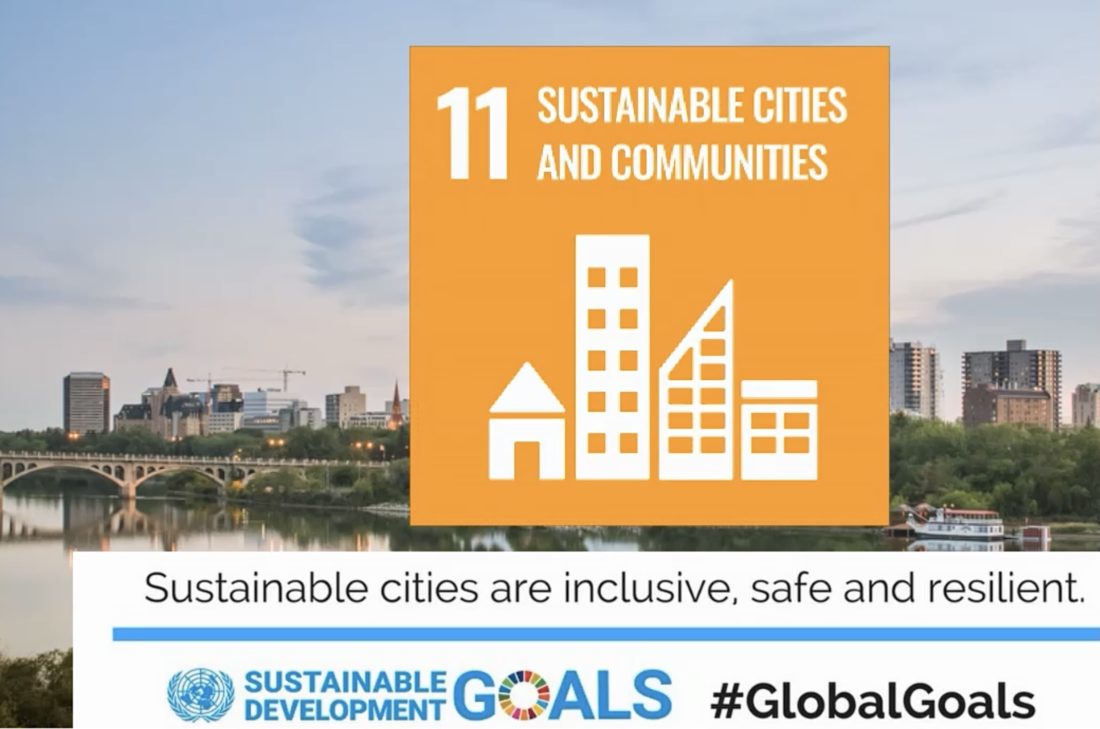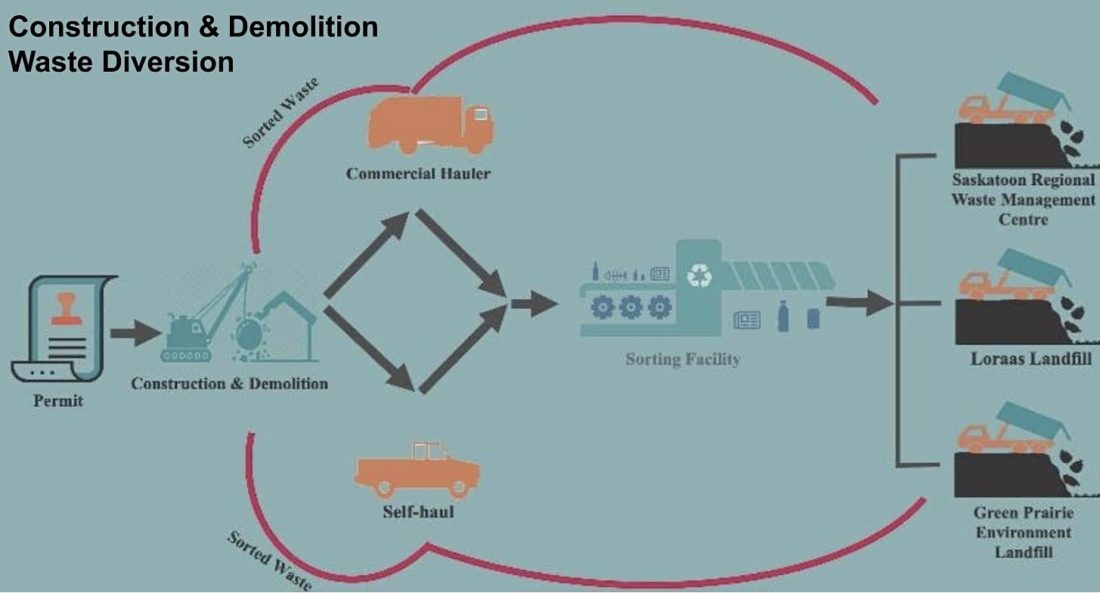
University of Saskatchewan students at this year’s EcoHack used their reading week to brainstorm ways to improve sustainability in Saskatoon.
Hosted by the U of S Office of Sustainability from Nov. 8 to Nov. 12, the competition was open to all undergraduate and graduate students at the U of S. Students were able to work individually or in teams to choose an environmental problem and pitch a solution. The City of Saskatoon chose the theme of the United Nations Sustainable Development Goal 11: “Inclusive, Safe, Resilient, and Sustainable Cities.”
Seven video proposals were submitted Nov. 12, with three shortlisted by a judging panel for public voting. On Nov. 23, the food-waste reduction app Celer by Chi Vu, a second-year computer science student, was announced as the winner of the $1,000 grand prize.
A strategy for construction waste diversion placed second, and a project to increase community-engagement in environmental initiatives placed third. Both runners-up will receive 500$.
“We’ve got a well-rounded group of topics to look at in the video submissions,” said Matt Wolsfeld, community engagement co-ordinator at the U of S and organizer for EcoHack.

To help students with their proposals, organizers, city representatives and one member of Saskatoon-based tech incubator Co.Labs used the digital space to lead a series of workshops. These were focused on skills that would be applicable beyond the competition, such as formulating problem statements, video production, and pitching.
According to Wolsfeld, skills-development is an important aspect of the Office of Sustainability’s goal to improve sustainability curricula by ensuring students are both academically and experientially prepared for future professions.
This is the second year that EcoHack has taken place virtually, but Wolsfeld says that this format was improved this year through the use of gather.town, an online platform where users design avatars and interact with video chat in a virtual room.
“It kind of had some more of the energy previous years had, when you were able to kind of walk around and talk to groups and see people and do things like that, versus just showing up for a Zoom call to a bunch of blank screens once or twice,” Wolsfeld said.
Beatrice Isaiah, Edgar Martinez, Emma Pierrard, Meghna Thakur and Nickol Saenz met one another in the gather.town space and, together, proposed the third-place project SaskGreen Hub.
“We thought about what Saskatoon has to offer right now [for] programs and initiatives to increase “greener” living. We saw a lack of awareness of the presence and affordability of these programs for middle-low-income households,” said Saenz, a third-year student studying environmental engineering, in an email to the Sheaf.
SaskGreen Hub is an online and physical space to increase community-engagement with existing environmental programs. It aims to improve the accessibility of information and resources necessary to implement methods of sustainable-living, such as furniture rentals, garden spaces and composting.

Kanwar Mutti, a master’s student in the sustainable environmental management program,, worked individually to develop the second-place project. Her two-year strategy aims to work towards a ban on construction and demolition waste in Saskatoon landfill by first diverting such waste to recycling programs.
The strategy would make an approved recycling plan a prerequisite for a construction and development permit, and would incentivize the use of existing recycling programs through refundable deposits.
Mutti consulted with a City of Saskatoon representative at EcoHack to identify the issue of construction waste management. She then examined how this issue is handled in larger cities and reached out to the City of Calgary for more information about their similar program.
“I moulded everything according to how [Saskatoon] is and took all the demographics and everything into consideration,” Mutti said.
Vu also worked individually to develop her first-place project. Her app Celer aims to address the problem of food insecurity and waste in Saskatoon.
Celer enables grocery stores to upload images and pricing of food products bearing minor flaws that reduce its retail value but do not significantly reduce the quality of the food. Residents in the city can then be notified of nearby discounts, and unsold food can be donated to food banks in a timely manner.
“Celer was really my effort to use software to tackle a problem at hand while working alongside charities and businesses within our City of Saskatoon. I feel like this kind of technology has become a ubiquitous part of our lives nowadays, and its uses are limitless,” Vu said.
Video proposals of all finalists are available on the “USASK ENVIRONMENT” YouTube channel.
—
Sandra LeBlanc | News Editor
Photos: As Credited
Leave a Reply